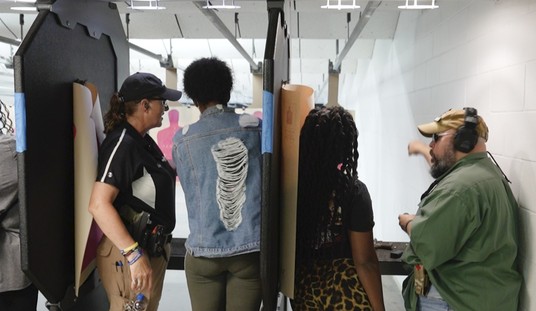I don’t trust people who push the public health approach to so-called gun violence. I shouldn’t have to distrust them, though.
After all, a public health approach could actually be beneficial by addressing the root causes of violent crime.
Yet that never seems to be what’s talked about by proponents of such an approach.
Despite that, they still try to pretend they’re the enlightened souls just trying to make the world better while folks like us are trying to keep us in the dark ages or something.
Take this piece as an example.
David Hemenway, a professor of health policy at Harvard University and director of the Harvard Injury Control Research Center, advocates for the public health approach, which he explored in his 2004 book, “Private Guns, Public Health.” “Public health is about prevention,” he says, while acknowledging the crucial role of law enforcement. “It’s not a fight about finding fault. It’s not about finding who did something wrong. It’s about trying to figure out ways to prevent the problem from occurring.”
Sounds nice, right?
The idea is supposedly that this is just about figuring out how to prevent the problems, not about blaming people for them.
Except, Hemenway is very quick to assign blame.
Sure, he’s not blaming certain individuals, but the very first question he answered not just blames guns, but does so in a fairly dishonest way.
Undark: The United States has a high rate of gun violence and gun deaths compared to other industrialized countries. Why?
David Hemenway: The big reason is the guns and the gun laws. Evidence indicates that we are really an average high-income country in terms of non-gun violence and crime. So if you look at our overall rates of burglary, or robbery, or sexual assault, or car theft, we do better than some of the other high-income countries and we do worse than others.
Then how does Hemenway explain the fact that our non-gun homicide rate is actually higher than many other developed nations’ total homicide rate?
He can’t, because those numbers show the exact opposite of what he’s claiming.
What’s more, he can’t seem to see literally any other factor other than guns.
But where we are different is we have lots, lots more guns; much greater household gun ownership; and also the types of guns we have. Canada has a fair number of long guns, but we have so many handguns; almost half of our gun stock now is handguns. And we also have all these military weapons that are easy for anyone to get. Then we have by far the weakest gun laws.
We also have a lot of other differences. For example, most nations don’t have the same demographics we have, where we have so many different ethnicities trying to co-exist at the same time in the same relative locations, all while also dealing with various economic and cultural issues.
Oh, and that was just the answer to the first question.
But that doesn’t mean Hemenway sees gun control as the only way forward, does it?
Actually, yeah.
UD: You’re known for supporting a public health approach to combating gun violence. What does that entail?
DH: If you ask me for a one-sentence description of the public health approach, it would be: Let’s make it really difficult to get injured, or to injure someone, and let’s make it really easy to be safe. So for example, I do some work about obesity, and the public health approach to obesity would be, let’s make it really easy for people to get healthy food, and make it harder for people to get junk food; let’s make it really easy for people to get healthy exercise and make it harder for them to be couch potatoes. And we do just the opposite in the United States.
The public health approach is about prevention. It’s not about individuals; it’s about the population.
In other words, your rights as an individual don’t matter. What matters is making it harder for you to have the best means of protecting yourself because of the actions of others.
Yet Hemenway fails to note that the vast majority of guns used by criminals are obtained unlawfully. They’re already prohibited from owning guns and yet, they get them.
As such, why would more gun control laws solve the problem?
But I don’t think Hemenway is oblivious to this fact. I think he omits it because he’s using his public health approach to try and justify the brand of authoritarianism he personally likes best. This idea, though, of infringing on the rights of the individual because you think it’s best for them is the most insidious type of authoritarianism.
At the end of the day, it’s still about trying to force people to do what you want them to do regardless of their individual desires.
There are avenues in addressing gun violence where the so-called public health approach can do some good. Hemenway outlines a couple later on in the piece.
But the problem is that at the end of the day, it’s obvious that gun control is going to be part of that equation, which makes it impossible to trust people like him, especially when they dishonestly make arguments about violent crime in other countries.








Join the conversation as a VIP Member